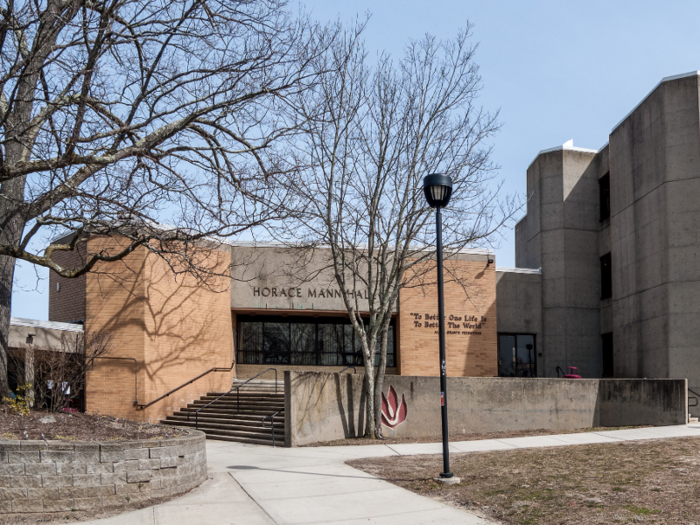- Home
- slideshows
- miscellaneous
- I went back to college as a 50-year-old. These were the most surprising things I had to adjust to.
I went back to college as a 50-year-old. These were the most surprising things I had to adjust to.
Learning new technology is hard — but it can be done

I stood out in class — in a good way

As we get older, we like to think we still "look and feel like we are 20." Being around actual twenty-somethings all day blows that illusion to pieces.
As an older student, you need to let go of the fear of not fitting in and embrace your life experience as an asset you bring to class discussions and group projects. Speak up, ask questions, make comments — after all, the point of college is not merely to learn from books and professors, but to learn from each other.
One student asked me if there was Google when I first went to college, to which I responded that there wasn't even an internet. Rather than feeling like an ancient relic from the Stone Age, I felt respected for my perspective.
Cognitive processing does slow down as we get older — and cramming won't work anymore

Like it or not, the speed at which our brains process information declines as we get older, and this decline begins in our thirties. Studying and memorizing new information was certainly harder than I remember from the first time I went to college, and it was a lot tougher to pull all-nighters on a regular basis.
On the other hand, life experience enhances a person's crystallized intelligence — the skills, abilities, and knowledge that is over-learned, well-practiced, and familiar. For example, I already had excellent time-management skills honed during my legal career, and being a mom at the same time I was in school and working helped me to cope with multiple assignments, projects, and exams.
Many of my professors were younger than me — and easier to communicate with

At times it felt weird to be taught by professors who were younger than my son. However, all of my professors responded to emails, had open office hours, patiently described theories and concepts I found hard to grasp, and treated me no differently than other students.
Ironically, because I was more comfortable asking questions and seeking clarifications from professors than my peers, I often was sought out by the other students when they were nervous about speaking up.
After one exam, for example, some students were unhappy with how one of the questions was graded, and they turned to me to voice their concerns. After I made a successful argument on the class's behalf, the professor outed me, stating, "Aren't you all lucky to have an attorney to appoint as your representative?" — which actually strengthened my relationship with the other students in the class.
I learned as much from my fellow students as I did from my professors

To get the most from your college experience, you must go all in. Resist the urge to retreat or get on with the rest of your day when class is over. Make time to study with other students, chat in the hallways, and sit with students in the dining hall.
And if you're asked to socialize after school with your classmates, say yes! One of my best times at school was a night out at an arcade bar playing retro video games, filled with unrestrained laughter and silly competition playing DDR and Ms. Pac-Man. I would have missed out on a good time and new connections if I had not stepped out of my comfort zone. These connections opened the door for discussions about my classmates' LGBTQ experiences, being first-generation students, working through past traumas and other stressors and anxieties.
As I work toward furthering my education in psychology, these informal chats with fellow students — who I now consider friends — gave me invaluable insights to younger generations, teaching me greater empathy for the different world that they have grown up in.
Pushing my boundaries of thought, learning, and relationships was a challenge that went beyond simply attending classes. It is a challenge I would recommend for anyone wondering "What if I went back to college?"
- Read more:
- 10 of the biggest cultural differences between the Midwest and the East Coast, from someone who's lived in both regions
- We asked pro résumé coaches to name one thing they wish everyone knew
- My boyfriend and I make $55,000 in one of the most expensive cities in the US — here's how we live and what we spend money on
- The first jobs of 14 of the biggest tech executives
Popular Right Now
Popular Keywords
Advertisement